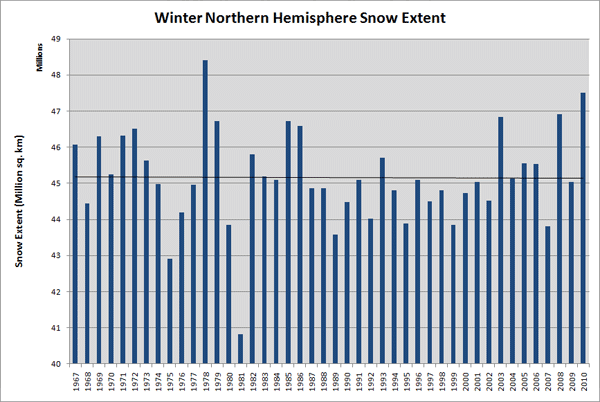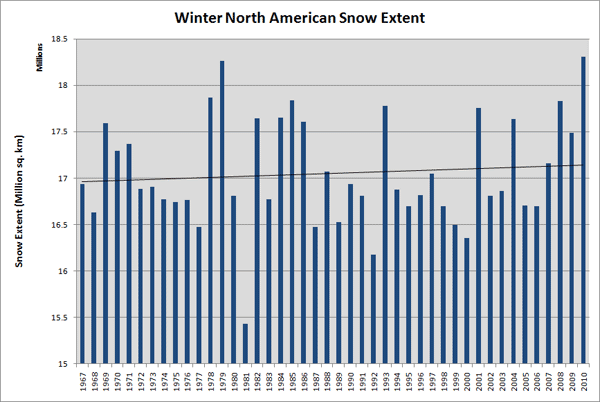By: Heather Lockwood (No relation to Heather Locklear or Mike Lockwood)
No need to check the facts when doing global warming research.
http://climate.rutgers.edu/snowcover/chart_seasonal.php?ui_set=nhland&ui_season=1
http://climate.rutgers.edu/snowcover/chart_seasonal.php?ui_set=namgnld&ui_season=1






Why ruin a good fantasy with real facts!
They just get more ridiculous every day. I’m really looking forward to the time when someone identifies the pathology.
The study seems to focus on estimated climate forcings from the reduction in snow cover from April to May. That is a very narrow scope. It opens the paper to question as to how anything in spring can be attributed to the effect of reduced snow cover as opposed to seasonal factors.
I think the Apr-May part is just a comparison with previous studies. It looks like the majority of their change comes during Mar-Aug. (looking only at the supplemental info at http://www.nature.com/ngeo/journal/vaop/ncurrent/extref/ngeo1062-s1.pdf).
Rutgers spring snow extent data would bear out the land changes:
http://climate.rutgers.edu/snowcover/chart_seasonal.php?ui_set=nhland&ui_season=2
You may be quite right and I may have misunderstood.
My comment reflects what I was able to glean from the supplemental info, which I read as calibrating the forcings based on the April to May changes.
There is not a clean and easily accessible copy of the entire study along with the supporting info readily available. Nature is behind a paywall for me.
Actually, the study seems to say “our models suxor bigtime and need to be improved to better reflect reality”
ROFL
From an Assistant Professor, no less.
Good luck with that tenure thingy, Mark.
During the peer review process, does anyone ever bother to check the facts before publishing?
Oh come on, Tony Duncan trusts peer review. Quit it. You’ll give him doubts.
;O)
His office didn’t get that memo about global warming causing more snow.
Weasel Word Alert: ice and snow cover in the Northern Hemisphere responded more to global warming over the last 30 years than was predicted by models
They could be right. We do know that the models suck at predictions, so even if the response had a 10% correlation, it would probably be better than the models.